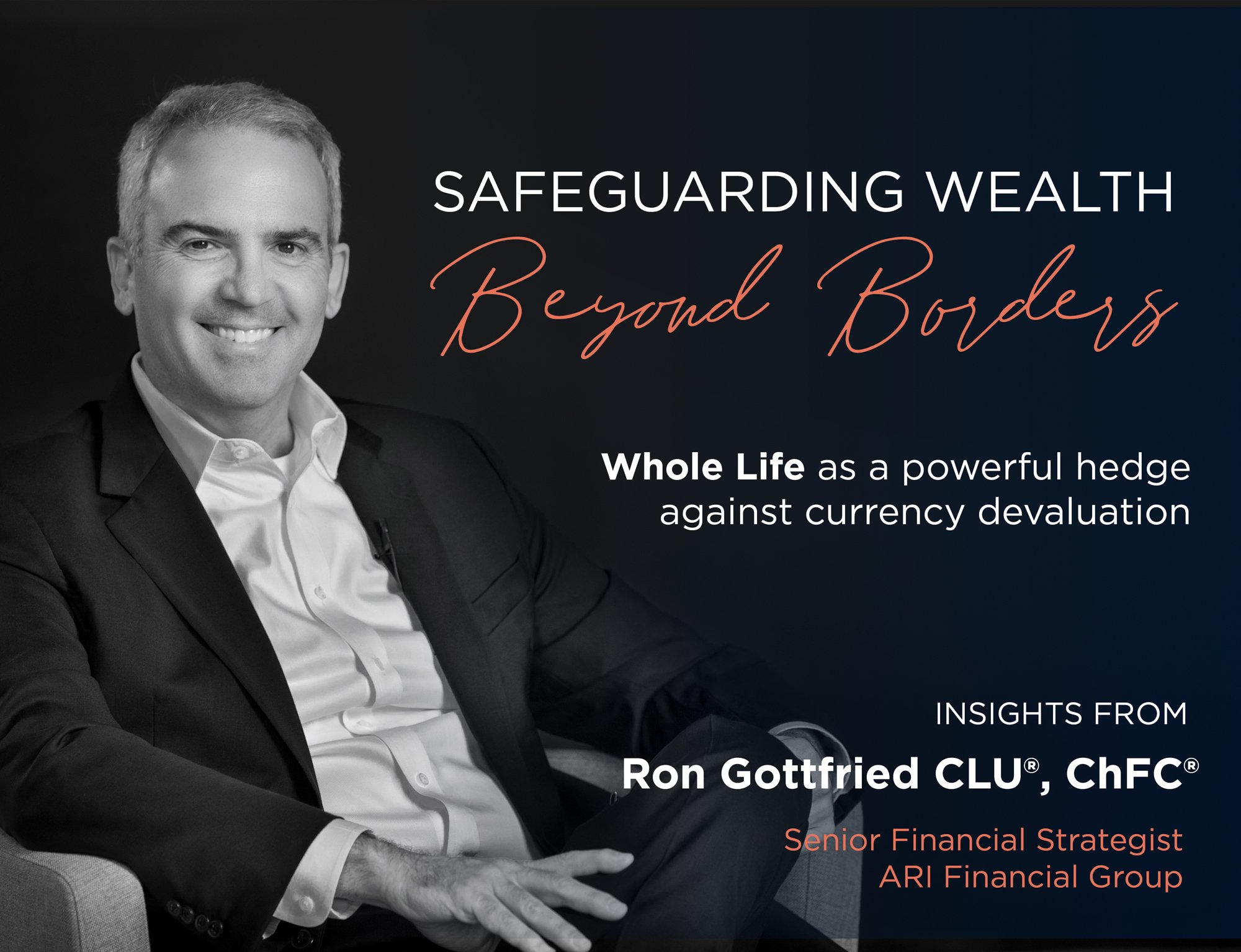Safeguarding Wealth Beyond Borders
How Whole Life Coverage Can Hedge Against Currency and Inflation Risk
By Ron Gottfried, CLU®, ChFC® | Senior Financial Strategist, ARI Financial Group
Aventura, FL - In today’s global economy, financial legacies are increasingly vulnerable to forces that transcend markets: currency devaluation and inflation. For high-net-worth individuals with international ties or assets across multiple jurisdictions, these risks are more than theoretical—they’re persistent, often silent threats to long-term wealth preservation.
At ARI Financial Group, we work closely with global families who understand that wealth isn’t just about growth—it’s about safeguarding purchasing power across generations. And when it comes to creating stability in the face of economic uncertainty, few tools are as effective as Whole Life insurance from a U.S.-based mutual carrier.
A Financial Anchor in a Volatile Currency World
Unlike assets tied to volatile markets or local currencies that can lose value overnight due to inflation or geopolitical shifts, Whole Life policies issued by leading U.S. mutual carriers are denominated in U.S. dollars—still regarded as one of the most resilient and stable currencies worldwide.
For international clients, this represents a strategic opportunity to anchor part of their estate in a secure, dollar-based instrument that compounds steadily over time, regardless of their home country's fiscal policy or economic turbulence. It’s not just about death benefit protection—it's about locking in value in a stable currency and transferring that value tax-efficiently.
Fighting Inflation with Guaranteed Growth and Dividends
Whole Life insurance is designed with predictability in mind. Unlike variable policies that fluctuate with market performance, Whole Life offers:
Guaranteed cash value accumulation
Contractual death benefit
Eligibility for annual dividends (not guaranteed, but historically consistent among top mutual carriers)
These features work together to offer real, inflation-sensitive benefits. While inflation erodes the buying power of cash and fixed-income investments, a well-structured Whole Life policy can actually increase in value through non-correlated returns. Over decades, that compounding effect becomes a powerful counterbalance to inflation.
U.S. Mutual Carriers: A Legacy of Strength and Policyholder Alignment
What sets mutual carriers apart is their ownership structure. Unlike stock companies, mutual carriers are owned by policyholders—not shareholders—so profits are returned in the form of dividends. Many of these institutions have been in existence for over a century, withstanding wars, recessions, and financial crises while consistently delivering long-term policyholder value.
For international clients, placing capital with a U.S. mutual carrier isn’t just about geographic diversification. It’s about aligning with a system that prioritizes policy stability, financial strength ratings, and a long-term vision rooted in stewardship—not speculation.
Estate Planning Meets Currency Hedging
We often advise our clients to think of Whole Life coverage not just as insurance, but as a core component of their global estate plan. When structured properly—with ownership and beneficiary arrangements tailored to cross-border needs—it becomes a dynamic planning tool:
Providing liquidity in U.S. dollars when it’s needed most
Preserving wealth in a stable jurisdiction
Creating a cross-generational hedge against local currency depreciation
It’s a rare financial instrument that can deliver so many functions in one chassis: protection, growth, predictability, and legacy—all with meaningful U.S.-dollar exposure.
As part of ARI Financial Group, my role is to help families around the world navigate the complexities of cross-border wealth. If you’re seeking to protect your legacy from inflation and currency volatility, Whole Life insurance deserves a seat at the table. Not because it’s traditional—but because it works.
— Ron Gottfried, CLU®, ChFC®
Senior Financial Strategist
ARI Financial Group

